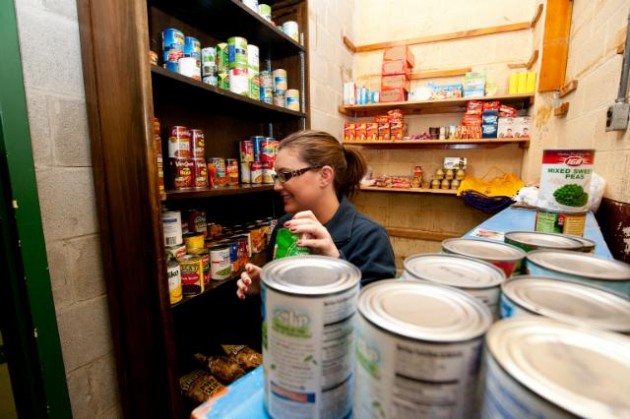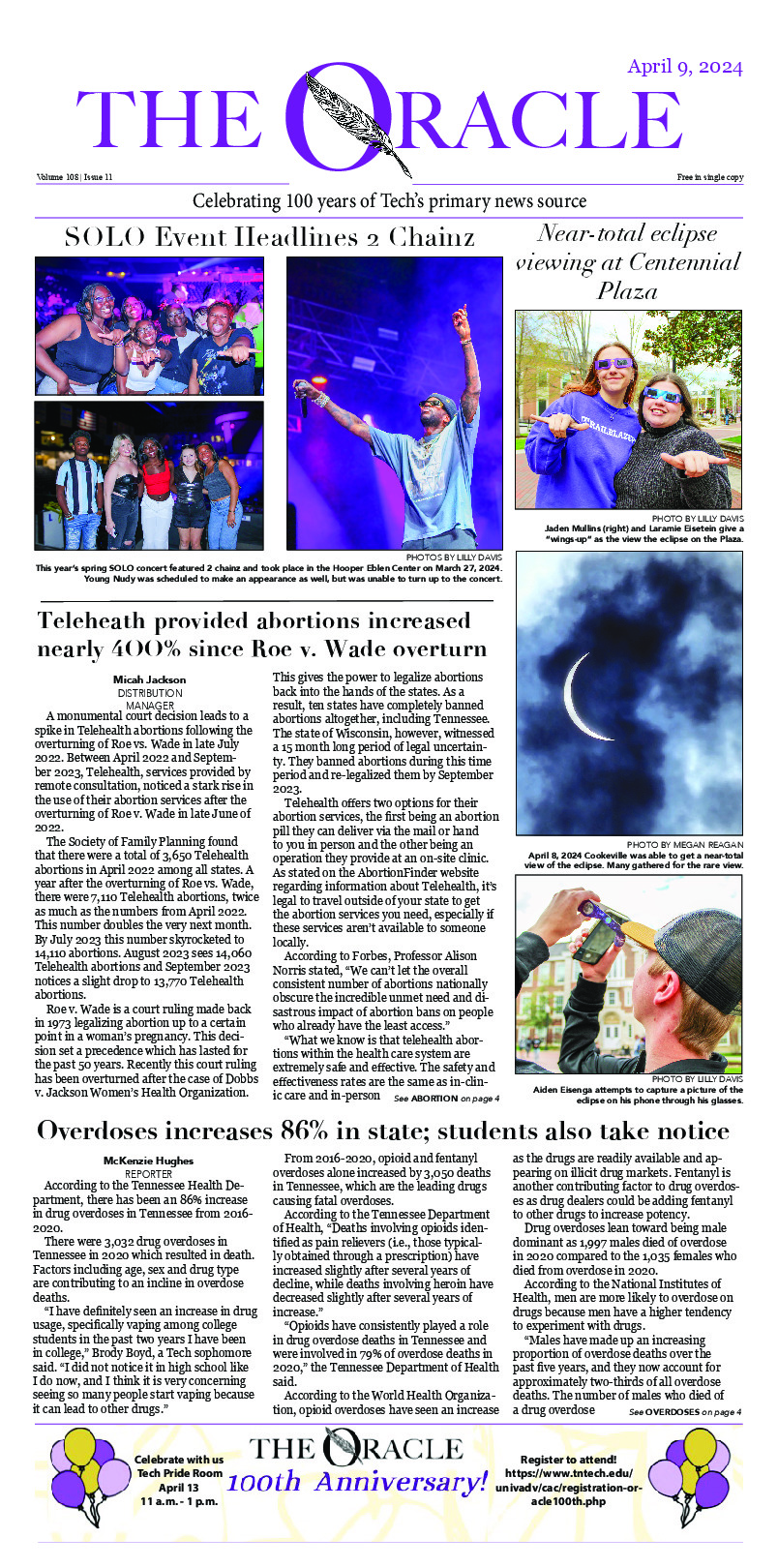
Dozens of cans of vegetables and boxes of other non-perishable foods are neatly stacked in a closet in the old cafeteria in Foundation Hall.
The items, sorted among three or four old bookcases, are the beginnings of a food pantry to help hungry students at Tennessee Tech University.
“I think a lot of people don’t realize there is such a need. You automatically assume if you can afford college, you can afford all the other basic necessities of life, and that’s just not the case,” said Kaitlin Salyer, a recent graduate who is working in TTU’s Service Learning Center through the AmeriCorps Vista program. “If you’re hungry, you may not test well, so I think it’s going to help students in a lot of ways.”
The pantry is still in its infancy, and Service Center staff are collecting donations. Distribution likely will not start until the end of the spring semester, according to Michelle Huddleston, TTU service coordinator.
In the several months since the project began, approximately 150 items have been donated. The group is working on a partnership with Second Harvest Food Bank to help bring in enough donated goods to sustain the effort.
Marc Burnett, TTU vice president for Student Affairs, Dean of Students Ed Boucher and Susan Elkins, former vice president for Extended Programs and Regional Development, had heard of a growing number of students going hungry. A campus-wide survey last semester supported their anecdotal evidence that there was a need for some kind of food assistance program for students, Huddleston said. The Service Center staff decided to spearhead the effort.
“I’ve never really experienced hunger myself but I know people who have,” said Salyer, a 2012 sociology graduate from Lafayette, Tenn. “It’s a struggle, and it’s a miserable feeling.”
“The running joke on campus is that you are living on ramen noodles, but for some students that really is the case. The pantry will give them a variety of things to choose from so they can have a healthier diet,” she said.
When the program is up and running, students will be able to come to the side door of the old cafeteria in Foundation Hall to pick up pre-sorted bags of food. The space was selected because it is out of the way of most campus traffic, which will help protect students’ anonymity.
There is a donation box inside the Service Learning Center in Roaden University Center 108. Salyer and Huddleston can pick up donations from offices or organizations who do an in-house collection drive.


